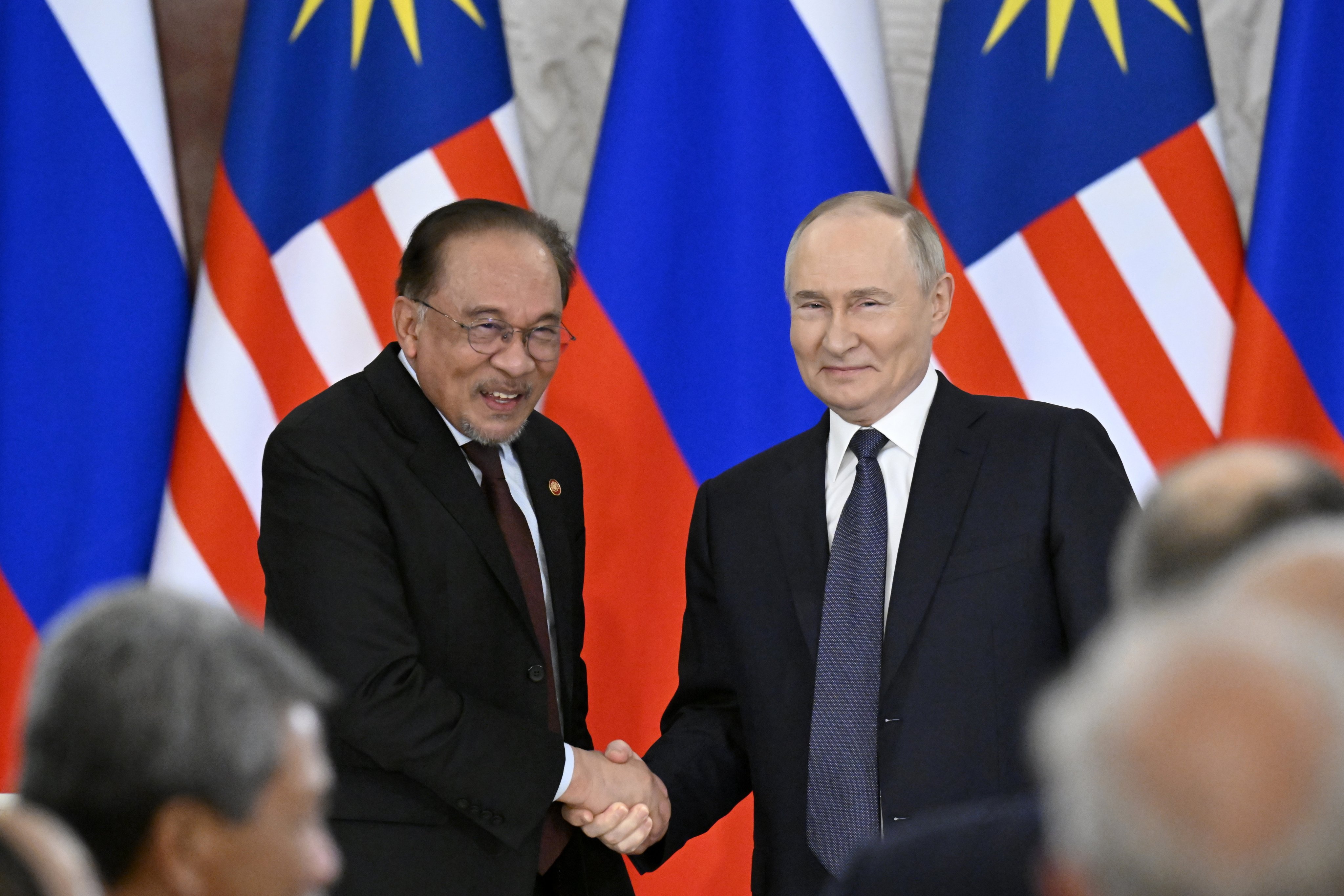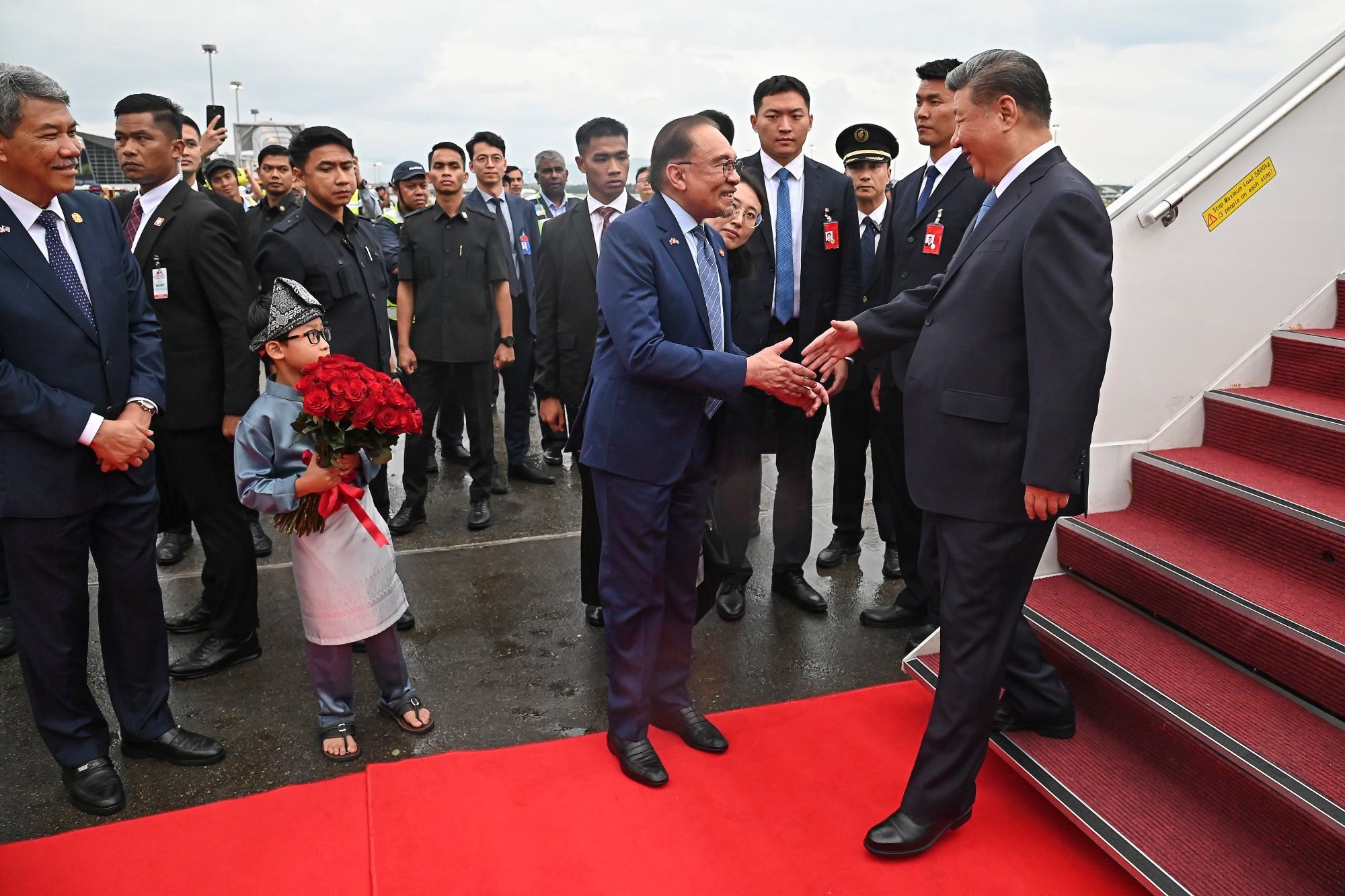Has Malaysia’s Anwar bitten off more than he can chew with geopolitical pivot?
Recent diplomatic overtures have raised concern that Anwar is leaning too close to Russia and China in his bid to diversify Malaysia’s trade ties

Malaysia’s Anwar Ibrahim can claim a rare feat during his recent four-day visit to Russia.
It was in Moscow where he managed to crack the usually stoic facade of Russian President Vladimir Putin, who was amused by the prime minister’s reply to a question on who occupies one of three ceremonial thrones once used by Russia’s imperial family.
“Without even thinking, the prime minister said ‘for the second wife’,” Putin said with a rare chuckle under his breath during a widely broadcast joint news conference with Anwar.
The exchange drew equal parts mirth and embarrassment for folk back home, with some calling it a masterclass in breaking the ice in a typically officious setting, while others decried it as a diplomatic faux pass that diminished Anwar’s standing to that of a court jester.
Whichever way you see it, the levity did not detract from the weight of the visit – a reflection of Anwar’s careful pivot as Malaysia seeks to navigate intensifying global rivalries and growing trade uncertainty.
The Moscow trip – Anwar’s second since taking office in 2022 – comes as Putrajaya scrambles to diversify exports and shield its economy from the sweeping tariffs US President Donald Trump is expected to impose as early as July.
Russia, for its part, has become a willing partner. It was among the earliest to endorse Malaysia’s application to join the Brics grouping of developing economies, which many see as an emerging counterweight to the G7 club of advanced nations.
Malaysia was last year made a partner state to Brics – formed in 2009 by original members Brazil, Russia, India, China and South Africa – and is pursuing full membership.
The appeal is strong. Brics accounts for about 40 per cent of the world’s population and an estimated one-third of global economic output.
While it may not necessarily translate to a direct shift in market demand outside the US, which remains the world’s largest consumer market, it is always a good bet to cast your net far and wide.
The problem, however, is what sort of posturing Anwar is signalling to the US and other partners closely watching his every move.
Anwar has repeatedly insisted that Malaysia upholds its long-held position of geopolitical neutrality and that it is a matter of survival for its trade-reliant economy to be friends with all nations.
But his diplomatic overtures have raised eyebrows among Malaysia watchers concerned that the Malaysian leader is leaning a bit too close to China and Russia.

In an effusive speech when hosting China’s President Xi Jinping last month, Anwar declared that Malaysia stood with China on trade, while both leaders took veiled swipes at Washington’s damaging tariff regime that experts fear could trigger a global recession.
When asked about China’s increasingly frontal approach to its expansive claim over nearly the entire South China Sea – replete with frigate-sized coastguard vessels patrolling contested waters – the Malaysian leader routinely describes them as mere border disputes.
While the US remains a key pillar supporting Malaysia’s economic growth, Anwar has not given as much latitude in his views of American foreign policy, which he blames for being complicit in Israel’s deadly war on Gaza.
However, when the International Civil Aviation Organisation last week ruled that Russia bore responsibility for the 2014 downing of Malaysia Airlines flight MH17, he was far less combative, saying that Putin had given his assurance that Moscow was willing to cooperate on the case but only with investigative bodies it considered “independent”.
To be fair, Anwar has also toned down his criticism of the US since Trump’s return to power, after reportedly being warned by his advisers that it may draw additional tariffs that could grind Malaysia’s economy to a halt.
Which raises the question – what exactly does Anwar want to achieve?
Anwar has said that while neutral, Malaysia will “stand in defence of the oppressed”.
But when push comes to shove, he may find that he has bitten off more than he can chew.